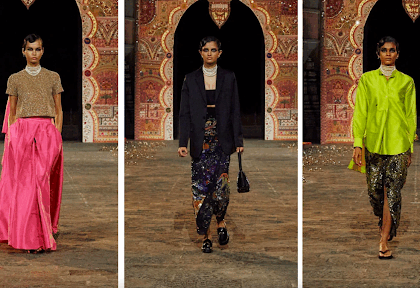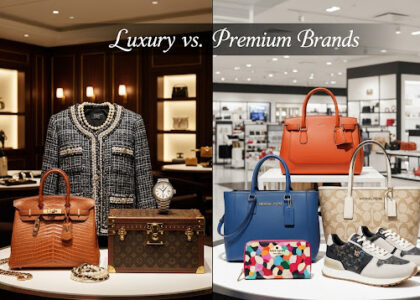Gucci has consistently positioned itself as one of the most influential luxury brands globally. Over the decades, the brand has evolved, blending heritage with innovation to captivate luxury consumers. Its marketing strategies focus on exclusivity, digital transformation, and bold brand storytelling.
In this blog, we will explore Gucci’s marketing strategies, key campaigns, and how the brand maintains its dominance in the luxury industry.
Gucci’s Key Marketing Strategies
- Digital Innovation & Social Media Dominance
Gucci has been a pioneer in digital marketing, leveraging social media and e-commerce to engage with younger audiences.
Example: The Gucci App offers AR features, allowing users to try on sneakers virtually before purchasing.

- Celebrity & Influencer Collaborations
Gucci strategically partners with celebrities and influencers to expand its cultural impact.
Example: Collaborations with artists like Harry Styles and brand ambassadors such as EXO’s Kai strengthen its appeal to diverse audiences.
- Storytelling Through Campaigns
Gucci’s campaigns are renowned for their bold visuals and unique narratives that challenge conventions.
Example: The 2020 “Gucci Gift” campaign, featuring surrealistic aesthetics, redefined holiday luxury marketing.
- Exclusive and Limited-Edition Collections
By launching limited-edition collaborations, Gucci maintains exclusivity and desirability.
Example: The Gucci x Adidas collection combined luxury fashion with sportswear, creating massive hype.
- Sustainability and Ethical Luxury
Gucci integrates sustainability into its brand identity, appealing to conscious consumers.
Example: The Gucci Off The Grid collection utilizes recycled materials, reinforcing the brand’s commitment to sustainable fashion.
- Immersive Retail Experiences
Gucci enhances in-store experiences through interactive and immersive concepts.
Example: The Gucci Garden in Florence offers visitors a multi-sensory experience of the brand’s history and craftsmanship.

How Gucci Maintains Brand Relevance
- Adapting to Cultural Trends – Gucci frequently taps into contemporary cultural movements, making the brand resonate with modern consumers.
- Leveraging Digital-First Strategies – From virtual fashion shows to NFT drops, Gucci embraces technological advancements to stay ahead.
- Engaging Younger Audiences – The brand consistently appeals to Gen Z and millennials through collaborations and bold marketing strategies.
Gucci’s marketing strategies exemplify how luxury brands can balance heritage with modernity. Through innovative digital campaigns, celebrity endorsements, exclusive collaborations, and sustainable initiatives, Gucci continues to be a leader in the luxury industry.
At The School of Luxury Retail (TSOLR), we equip students with the knowledge and skills to analyze luxury brand marketing strategies and consumer behavior. Our Luxury Brand and Retail Management (LBRM) program offers insights into how brands like Gucci sustain their market dominance through strategic marketing.





